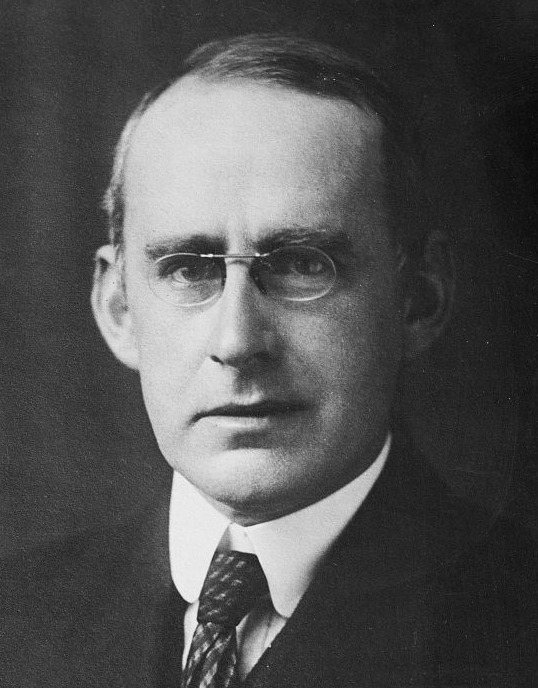Sobre las fórmulas matemáticas como expresión de las leyes científicas.
Fuente: Astro-Physical Journal, 1945, 101, 133.
Frases célebres de Arthur Stanley Eddington
Respuesta cuando se le preguntó en 1919 si era cierto que sólo tres personas del mundo comprendían la teoría general de la Relatividad"
Atribuidas
Fuente: Citado por Brian Stableford en Science Fact and Science Fiction: An Encyclopedia (2006), 150
Sobre la segunda ley de la termodinámica.
Fuente: The Nature of the Physical World (1927).
Sobre la naturaleza cuántica del electrón.
Fuente: Gifford Lectures (1927), The Nature of the Physical World (1928), p. 199.
“Para decirlo crudamente: la sustancia del mundo es la sustancia mental.”
Fuente: The Nature of the Physical World (Gifford Lectures, 1927), Cambridge University Press, Londres, 1930 , p. 276.
Fuente: Nuevos senderos de la Ciencia (Messenger Lectures, 1934), Edición de M. Masriera, Montaner y Simón, Barcelona, 1945, p. 343
Arthur Stanley Eddington Frases y Citas
Argumentando contra el carácter probabilístico de la mecánica cuántica.
Fuente: La naturaleza del mundo físico (1937), traducido por Carlos María Reyles, Ed. Sudamericana, Buenos Aires, 1952, p.238.
Fuente: Stars and Atoms (1928, 2007), Lecture 1. 9.
Sobre la extraordinaria coincidencia entre las cargas del protón y el electrón, dos partículas que pertenecen a distintas familias, pero cuyas cargas eléctricas se neutralizan entre sí.
Fuente: The Philosophy of Physical Science (1939), Tamer Lectures (1938), 170.
Fuente: Nuevos senderos en la Ciencia, Messenger Lectures (1934). 1935, 21.
Arthur Stanley Eddington: Frases en inglés
Fuente: Science and the Unseen World (1929), Ch. VIII, p.79
Fuente: The Nature of the Physical World (1928), Ch. 4 The Running-Down of the Universe
The Internal Constitution of Stars, Cambridge. (1926). ISBN 0521337089
Paraphrased variants: It is sound judgment to hope that in the not too distant future we shall be competent to understand so simple a thing as a star.
It is not too much to hope that in the not too distant future we shall be competent to understand so simple a thing as a star.
Science and the Unseen World (1929)
III, p.36
Science and the Unseen World (1929)
Stars and Atoms (1927); lecture 1
New Pathways in Science (1935) Ch. IV The End of the World, p. 62
p, 125
Space, Time and Gravitation (1920)
Fuente: Science and the Unseen World (1929), Ch. V, p.53
“The quest of the absolute leads into the four-dimensional world.”
Fuente: The Nature of the Physical World (1928), Ch. 2 Relativity
“Proof is the idol before whom the pure mathematician tortures himself.”
Fuente: The Nature of the Physical World (1928), Ch. 15 Science and Mysticism
p, 125
Space, Time and Gravitation (1920)
The Nature of the Physical World (1928)
The Internal Constitution of Stars, Cambridge. (1926). ISBN 0521337089
“Physics most strongly insists that its methods do not penetrate behind the symbolism.”
III, p.36
Science and the Unseen World (1929)
That is an excellent description of Pure Mathematics, which has already been given by an eminent mathematician <nowiki>[</nowiki>Bertrand Russell<nowiki>]</nowiki>.
Space, Time and Gravitation (1920)
“The whole subject-matter of exact science consists of pointer readings and similar indications.”
Fuente: The Nature of the Physical World (1928), Ch. 10 The New Quantum Theory <!-- p. 219 -->
Science and the Unseen World (1929)
“Shuffling is the only thing which Nature cannot undo.”
Fuente: The Nature of the Physical World (1928), Ch. 4 The Running-Down of the Universe
Fuente: Science and the Unseen World (1929), Ch. IV, p.48-49
V, p.55
Science and the Unseen World (1929)
existence
Science and the Unseen World (1929)
Fuente: The Nature of the Physical World (1928), Ch. 13 Reality
“Even if religion and morality are dismissed as illusion, the word "Ought" still has sway.”
Science and the Unseen World (1929)
IV, p.41
Science and the Unseen World (1929)
